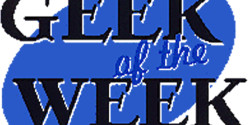It appears that Internet radio can soon celebrate its 21st birthday. The New York Times identified what is arguably the first Internet radio station in an article posted by reporter John Markoff on March 4, 1993.
“Talk radio is coming to desktop computers,” Markoff wrote from San Francisco. “Within a few weeks, a Virginia-based entrepreneur plans to begin broadcasting a weekly 30-minute radio talk show on Internet, the global computer network that links together more than 10 million scientists, academics, engineers and high-tech industry executives.”
The progenitor of this service was and still is Carl Malamud, then a thirty-something economist and writer. His UUNET based Internet Talk Radio show would initially target engineers and computer network users, Malamud told The Times. Users with advanced computer systems would be able to access the interview as it transmitted. But the half hour shows would be taped and made available for download.
“I call this random access radio,” he explained. “Our listeners can start, stop, rewind, or otherwise control the operation.” Malamud framed the approach more intriguingly in one of his press releases, cited in an article by the Vancouver Sun: “Asynchronous times require asynchronous radio.”
You can still listen to these programs on the web. Each featured a “geek of the week” interview, the earliest dated March 31, 1993. Judging by its description, it was, well, pretty geeky:
“Carl Malamud interviews Dr. Erik Huizer of SURFnet BV, a network service provider in the Netherlands. Dr. Huizer, in addition to his duties for network development of SURFnet is the Area Director in the Internet Engineering Steering Group for the Applications Area. Applications in the IETF includes key topics such as resource discovery.
In this interview, Carl Malamud and Dr. Huizer cover a wide range of topics, including the future of messaging systems in a multiprotocol world and the role of the PTT. Dr. Huizer goes on to discuss the internationalization of the Internet and the future of the European Multiprotocol Backbone (EMPB).
Also in this episode of Geek of the Week are three featurettes. The Incidental Tourist features Freeling’s classic books. Name that Acronym features an obscure and, for most engineers, arcane acronym to reverse engineer. Book Byte has a review of a book on Obfuscated C.”
I like that “asynchronous” line, which still aptly describes the download now, play later nature of the medium. Technology origins are always a tricky call. Usually more than one person is doing the innovating. But for now, let’s wish Internet radio a happy impending 21st birthday. At last the medium can drink and drive (but not at the same time, of course).



